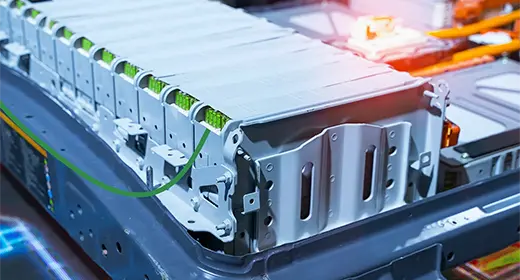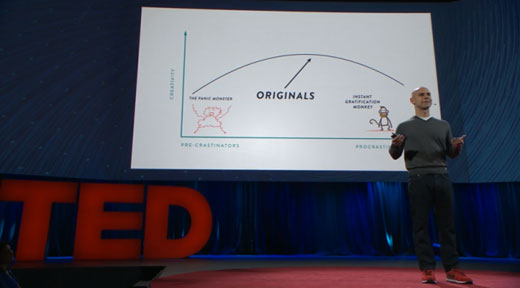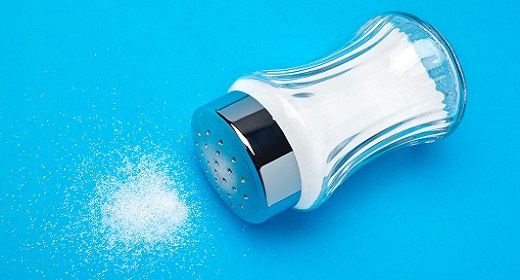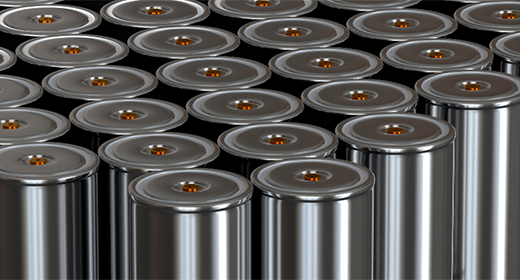by Dave Nichols: Right now, all-electric and plug-in hybrid cars rely on lithium-ion battery packs,
which have technical limits. Solid-state batteries may be the “next big thing” in electric car technology. Here’s what you need to know.
A “Game Changer” in EV Technology
Zero emission, all-electric cars are coming fast, with many major automakers pledging to shut down production on gasoline-powered vehicles by 2030. But going all-electric on a planetary scale requires an immense process of conversion in order to beef up electricity grids, build more charging stations as well as more efficient EVs, and push new technology for lighter, cheaper batteries that offer faster charging and longer range.
Hybrid, plug-in hybrid, and all-electric vehicles are becoming more affordable and better technology is leading to more range and better acceptance by consumers. “Consumers can save a lot of money in the long run by switching to an EV,” says Consumer Reports’ Chris Harto who recently put together a study on the benefits of owning an EV. Barriers to ownership continue to be range anxiety and availability of charging stations, though 71 percent of those surveyed said they would do most of their charging at home.
“American drivers are accustomed to having ready access to gas stations and may not realize that if they have a personal garage or driveway, they’ll be doing most of their charging at home with an EV,” Harto says. “Even though we have found that the typical driver would make as few as six stops at a public charging station every year, a more robust network of fast charging stations would help alleviate buyers’ concerns about switching to an electric vehicle.”
According to Consumer Report’s survey results, younger drivers are more likely than older ones to buy an EV for their next vehicle. But it appears that by and large, there is growing interest across different groups. “These results show that there is robust consumer interest in electric vehicles, but consumers need automakers to deliver more compelling choices at competitive prices,” Harto says.
That leads us to a true “game changer” technology in the EV world; solid-state batteries.

The Limits of Lithium-Ion Batteries
Right now, all-electric and plug-in hybrid cars rely on lithium-ion battery packs. These batteries are similar to the ones used in your laptop or smartphone. They are made with a liquid electrolyte inside a casing that adds weight and can become unstable at high temperatures. In EVs, these batteries are linked together in a series for battery packs that are robust enough to power the vehicle, but the cost of mining lithium and manufacturing, ads considerable cost to all-electric cars. Plus, lithium-ion batteries degrade over time and lose some of their ability to recharge.
The performance of today’s lithium-ion battery packs used in EVs cannot be improved upon much farther. They are limited as far as energy density in how much electricity they can store, how many charge cycles they can endure, how well they can handle extreme heat, and they continue to be very expensive to produce. However, there are many advanced battery technologies on the way. One of the most promising is the solid-state battery.

What are Solid-State Batteries?
Solid-state batteries do not need liquid electrolyte, replacing it with a ceramic solid electrolyte. The basic structure is similar to a lithium-ion battery, but by not using flammable liquid inside, the battery pack can be lighter, safer, and much more compact. The technology is not new. In fact, solid-state batteries have been used in pace-makers and smart watches for years. They are both safer to use and cheaper to produce, while allowing for faster charging times and greater range.
Solid-state batteries reach an 80 percent charge in just 15 minutes and are strained less by multiple charging cycles. While a lithium-ion battery begins to degrade after 1,000 cycles, a solid-state battery maintains 90 percent of its capacity after 5,000 charges. The problem in using solid-state battery packs in electric vehicles so far has been in applying the technology to large-scale applications. But that too, is changing.

Solid Power’s Solid-State Batteries
BMW and Ford Motor Company are investing $130 million in Solid Power, a Colorado-based solid-state battery startup company. The company uses sulfides to create solid electrolyte which they call an all-solid-state battery or ASSB. According to Solid Power’s CEO Doug Campbell, “There are various groups that make the claim of solid-state batteries while using more of a hybrid electrolyte that includes liquid or gel components. We have completely removed the flammable liquid electrolyte and replaced it with our solid ion-conducting sulfide electrolyte. These hybrid solid-liquid electrolytes don’t reap the benefits of added safety at the cell and pack level, which is why we refer to our solution as ASSB to differentiate from a hybrid or semi-solid solution.”
Solid Power boasts that their batteries have a battery density of at least 50 percent greater than conventional lithium-ion EV batteries. These new solid-state batteries can recover 90 percent of a charge in just 10 minutes. Solid Power is entering into the formal automotive qualification process in 2022 and hope to have its battery packs in EVs by 2026. Solid Power says its batteries will last close to 400,000 miles, which means they will last longer than the life of the vehicle itself.

The Race for Better EV Batteries
“Gentlemen, start your engines!” The race for solid-state supremacy is on! Beside Solid Power and its BMW and Ford connections, Hyundai is spending $100 million with SolidEnergy Systems in conjunction with the Massachusetts Institute of Technology to produce its own solid-state batteries. Toyota is partnering with Panasonic to produce solid-state batteries for its coming line of all-electric vehicles. Volkswagen is backing QuantumScape, a San Jose, California startup that spun-off from Stanford University. It claims to have developed a production-ready solid-state battery that is ready to go into production in 2024.
These solid-state companies will be going head-to-head with some of the biggest and best capitalized companies in the world, including China’s CATL (valued at $85 billion), LG Chem ($62 billion), Samsung ($37 billion), Panasonic ($33 billion), and even Tesla ($608 billion).
About the Author
Dave Nichols is the marketing copywriter for Lithia Motors’ online research center and GreenCars content. He worked with Jeremy Clarkson, James May, and Richard Hammond of Top Gear to develop the online car portal Drive Tribe. His current duties include reviewing cars as the host of “Cruisin’” video road tests on YouTube.










































